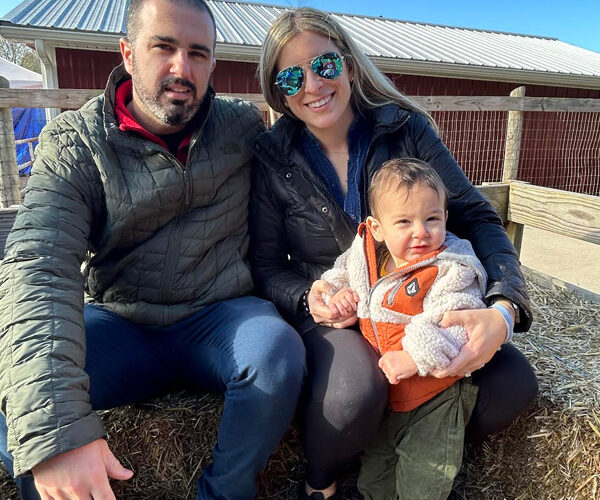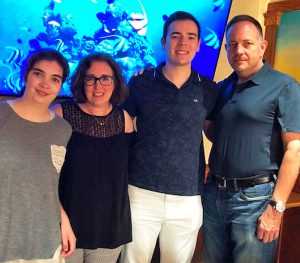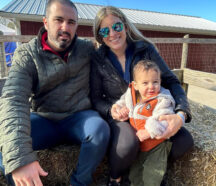Supporting Students with Learning Differences During COVID-19

In March, when COVID-19 hit, students with learning differences and disabilities and their families found themselves in an unprecedented and deeply uncertain situation. As schools shut their doors, and educators scrambled to familiarize themselves with the tools of online learning, parents wondered how they would manage professional commitments while also contending with childcare and education issues.
Adding to their concerns was the fear that their children would not be able to learn without the hands-on, individualized and multisensory approaches they needed.
At SHEMESH and the Macks Center for Jewish Education (CJE), both agencies of The Associated: Jewish Federation of Baltimore, dedicated professionals rose to the occasion with a series of programs and adaptations to serve the needs of children with learning challenges and disabilities.
“When it became clear that we would not be returning to school in-person, our staff shifted to online instruction via Zoom,” says Faye Friedman, interim executive director at SHEMESH. “This shift necessitated that our staff learn new skills and identify resources. We engaged in numerous webinars and ‘sharing’ sessions, where we exchanged ideas and materials. We opened these sessions to other special educators and specialists in the community and received great feedback.”
Despite rigorous preparation, “online instruction in the group setting was more than challenging for our students with learning differences,” says Friedman. “It was especially difficult for those with attention difficulties, but really for all our students; the effort of staying engaged through the period of instruction was overwhelming and exhausting.”
At CJE, Rachel Turniansky, director of disability and inclusion services also found online education “very challenging,” especially for students requiring technical accommodations.
“We’ve pushed to try to get everyone the accommodations they need to access the curriculum. …That looks different for everyone,” she says.
“For people who are deaf and hard of hearing, online communication is very difficult. Being on Zoom, it is much harder to hear. So, we use live captioning,” says Turniansky, who encourages prospective participants to let the staff at CJE know if they need any special accommodations to participate in CJE programs.
“We want people to get the help they need!” adds Turniansky.
“It’s so much easier for families to attend when they don’t have to get their kids dressed and ready, pack up everything they need and then travel to the program.”
Regardless of the difficulties associated with online learning, Turniansky and Friedman both site some unforeseen benefits.
“We’ve seen a huge spike in participation at our monthly Kol Echad [inclusive] Shabbat services,” says Turniansky. “It’s so much easier for families to attend when they don’t have to get their kids dressed and ready, pack up everything they need and then travel to the program.”
Turniansky says CJE has recently returned to offering a virtual version of its popular Karma Dogs program in which dogs offer comfort to children struggling to read and do homework. “It’s not the same as snuggling with the dogs, but kids still have to do homework and the Karma Dogs still help with that. Some new families have found us through this program and we love it!”
Friedman has found that Zoom works well for 1:1 sessions with many students. “There are some wonderful online resources, games and materials that we utilize that make our individualized online sessions interesting and engaging,” she says. “Being able to focus on one student at a time, gives us the opportunity to tailor our sessions to meet their individual needs. Personally, I heard from several parents that it was the most productive part of their child’s day. And without having to spend time traveling from school to school, I can more easily schedule students and accomplish more.”
To assist parents, CJE presented a Zoom event to address their concerns. The event was also available for viewing on Facebook at other times. Additionally, support for parents is provided through CJE’s MDSNAP [Maryland Special Needs Advocacy Project], one of the few free such programs in the state. MDSNAP offers free educational advocacy services for Jewish children with special needs, from birth to age 21.
While teachers have done their best to accommodate students during the pandemic, Friedman says she and her colleagues “are awaiting the day when school returns to ‘normal.’ Nothing can replace the benefits children gain from socializing and learning with their peers.”
“And while we’ve been sure to address the social-emotional learning of our students from ‘afar,’ nothing replaces the closeness and warmth we feel when we are together. A safe, caring and mutually respectful relationship is key to student learning.”
For resources, services, support groups, workshops and clinics and recreational programs in the community go to baltimore.jewishabilities.org.
February is Jewish Disabilities Awareness and Inclusion Month. Check out some of these programs from around The Associated system.
Jewish Federations of North America-Jewish Disability Advocacy Month: From Empowerment to Action
Various February dates
A month of education, solidarity-building and empowerment in support of people with disabilities.
jewishtogether.org/jdam
JDAIM Author Talk with Jodi Samuels, author of Chutzpah, Wisdom and Wine: The Journey of an Unstoppable Woman
February 9, 7:00 pm
Cjebaltimore.org
Kol Echad Inclusive Shabbat Service
February 12
Cjebaltimore.org
Specialized Solutions
February 17, 8:00 p.m.
A monthly series of discussions on resources for families with a child with special needs. This month, Dr Jacob Priluck, neuropsychologist, and Martha Goodman, MDSNAP Coordinator, will field community questions.
Cjebaltimore.org
SHEMESH and You! Chat with a Professional
Throughout February
Topics include social skills, early literacy and reading.
Shemeshbaltimore.org
For a complete list of events, visit baltimore.jewishabilities.org.
Subscribe to our newsletter
The Associated is a home for everyone in the Baltimore Jewish community. We offer several email lists to help people find a community, engage with their peers and support Jewish journeys around the world.
Join Our Mailing ListAdd Impact to Your Inbox
Sign up for our newsletter
Subscribe to our newsletter
The Associated is a home for everyone in the Baltimore Jewish community. We offer several email lists to help people find a community, engage with their peers and support Jewish journeys around the world.
Join Our Mailing List









 Please Wait while we loading your video.
Please Wait while we loading your video.